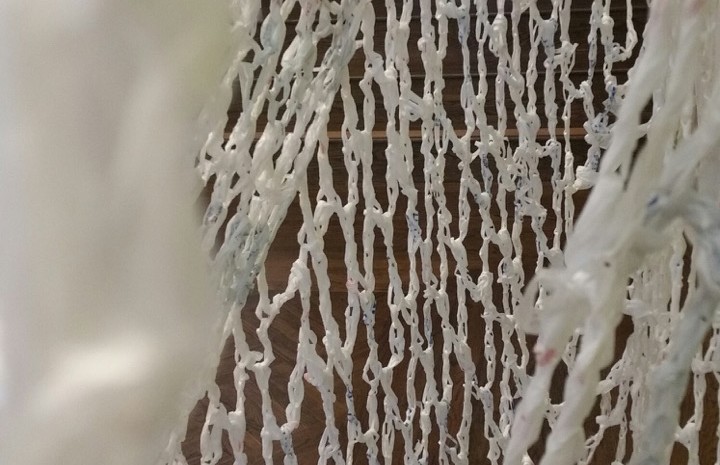Ghost nets are fishing nets that have been lost, abandoned, or discarded in the ocean. These nets, nearly invisible in the dim light, can be left tangled on a rocky reef or drifting in the open sea. Ghost nets kill indiscriminately, entangling everything including birds, fish, crabs, turtles, dolphins, and thousands of marine mammals, often causing a slow and painful death. Literally, hundreds of kilometers of nets get lost every year and due to the nature of the materials used to produce these nets, they can and will keep trapping for multiple decades, possibly even for several centuries.
We all use plastic every day; and while plastic provides convenience in our modern world, the detrimental consequences of our consumption of plastics is becoming ever more evident. Landfills are clogged with single-use plastics — especially bags that are used for fruit and vegetables, carry-out dinners, and snacks picked up at the convenience store.
Made with approximately three thousand, five hundred repurposed single-use plastic bags, Indiscriminate Catch is a hand-crocheted net that seeks to bring attention to the harmful effects of plastic, fishing nets, and trash in our oceans.
Crochet has a long history as a craft and art form for the creation of objects that are useful, beneficial, and ornamental. As a process, crocheting with single-use plastic bags is a step or two beyond the traditional craft my grandmother taught me as a child. I still use a few of the basic stitches she showed me, and I still follow some of the general guidelines of what makes a good crochet item; however, I have moved away from the traditional material.
Through the juxtaposition of crocheting a huge net with repurposed single-use plastic, Indiscriminate Catch seeks to encourage meaningful conversations about the damaging effect of ghost nets and single-use plastic around the world while also addressing gender inequalities and domestic crafts.
